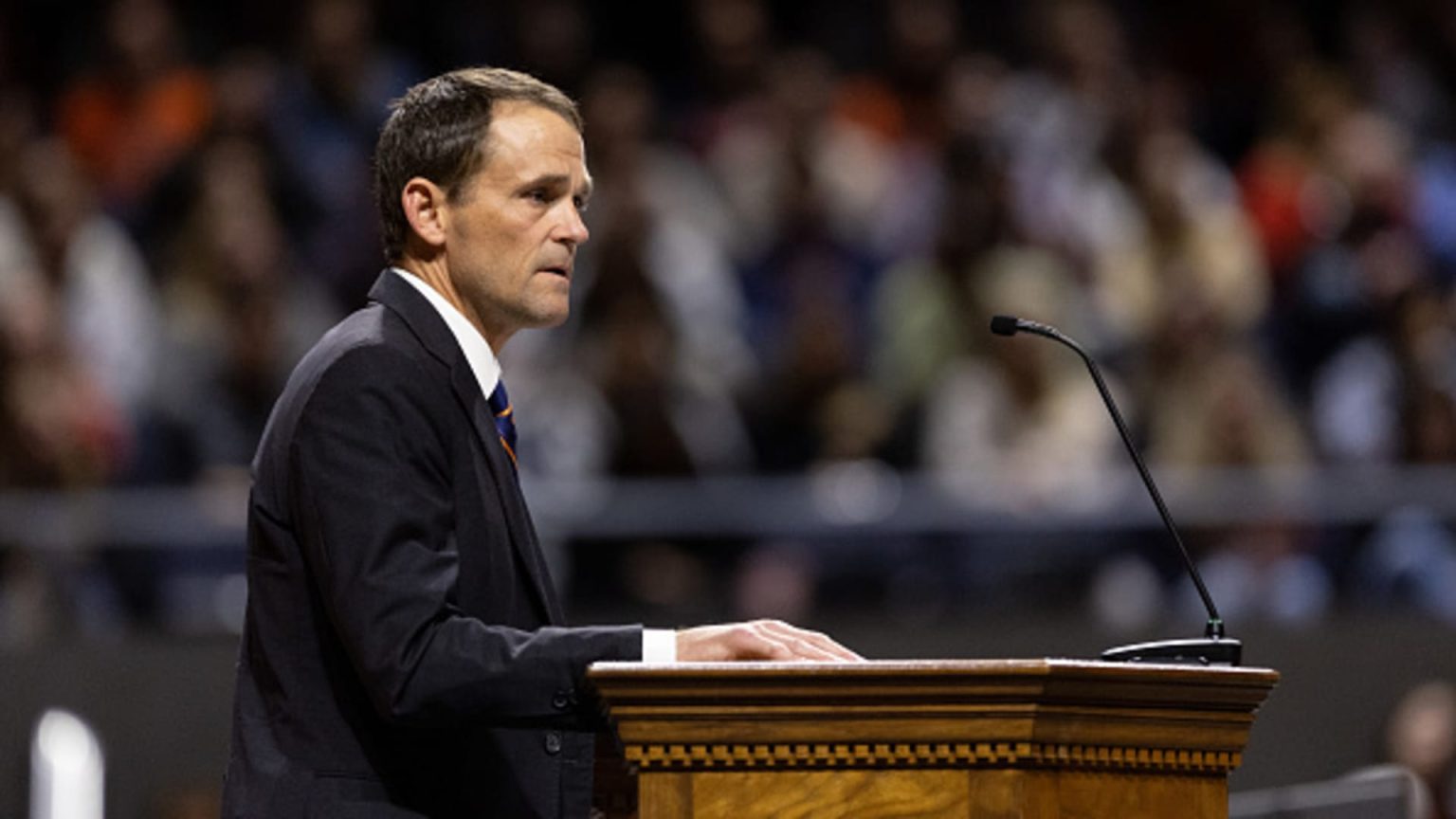The recent resignation of James E. Ryan, President of the University of Virginia, has stirred considerable debate surrounding institutional governance and federal intervention in higher education policies. His departure follows pressure from the Trump administration amid an ongoing investigation by the Justice Department into the university’s diversity practices. This decision has drawn criticism from Virginia’s Democratic senators, who argue that such actions compromise the integrity of higher education in the state.
| Article Subheadings |
|---|
| 1) Background of the Resignation |
| 2) The Role of the Trump Administration |
| 3) Reactions from University Officials |
| 4) Broader Implications for Higher Education |
| 5) Future of Diversity Initiatives |
Background of the Resignation
The resignation of James E. Ryan marks a significant shift in the leadership of the University of Virginia, a prestigious institution known for its commitment to research and education. Ryan had been serving as the school’s ninth president since 2018 and was viewed as a progressive leader in higher education. His resignation was reportedly announced during a meeting convened with senior leadership on a Friday, as confirmed by a source familiar with the UVA Board of Visitors meeting. The decision came amidst intensifying scrutiny surrounding the university’s diversity, equity, and inclusion (DEI) initiatives, which have become hot-button topics in recent years.
The Role of the Trump Administration
The involvement of the Trump administration in Ryan’s resignation sheds light on the broader political landscape affecting educational institutions. Reports indicate that the Justice Department had explicitly demanded Ryan’s resignation in order to facilitate an investigation into the university’s DEI practices. The administration asserted that failing to comply might result in significant consequences, including the possibility of losing federal funding. In March, the university’s governing Board of Visitors had already voted to abolish its DEI office following the administration’s recommendations, reflecting a significant policy shift. Republican Governor Glenn Youngkin praised this move, describing it as a triumph of “common sense” and underscoring a return to a more traditional interpretation of equality within the state’s education system.
Reactions from University Officials
In the aftermath of Ryan’s resignation, various university officials and lawmakers have expressed strong reactions, emphasizing the implications of federal overreach in academic governance. Democratic Senators Mark Warner and Tim Kaine issued a joint statement condemning the actions taken by the Trump administration, characterizing the demand for Ryan’s resignation as “outrageous.” They praised Ryan as a “strong leader” who contributed positively to the university and the broader Commonwealth. According to their statement, “Decisions about UVA’s leadership belong solely to its Board of Visitors,” reinforcing the notion that institutional governance should be independent of political pressures.
Broader Implications for Higher Education
The events surrounding Ryan’s resignation open the floor for discussions about the role of governmental influence in higher education. As institutions increasingly find themselves navigating ideological battlegrounds over policies related to diversity and inclusion, the implications resonate far beyond UVA. The ongoing scrutiny facing educational institutions often leads to concerns about academic freedom and institutional autonomy. Critics argue that such interventions signal a worrying trend where educational policies are subject to political whims, undermining the foundational principles of independent academia. This development has sparked a discussion on how universities can safeguard their missions while balancing federal and state expectations.
Future of Diversity Initiatives
As the University of Virginia moves forward without Ryan, the future of its diversity initiatives remains uncertain. The university has historically been viewed as a leader in fostering a diverse academic environment. However, with recent developments including the dismantling of the DEI office, questions about the university’s commitment to diversity and inclusion are emerging. The Justice Department’s stance and the subsequent actions taken by UVA’s governing body may set a precedent for other universities grappling with similar pressures. Observers are keenly watching to see how these changes will affect the university’s engagement with issues of equity and representation in its student body and faculty.
| No. | Key Points |
|---|---|
| 1 | James E. Ryan has resigned as president of the University of Virginia amidst federal pressure to change DEI practices. |
| 2 | The Trump administration’s Justice Department demanded Ryan’s resignation during an ongoing investigation into the university’s diversity practices. |
| 3 | Virginia’s Democratic senators criticized the resignation, arguing it jeopardizes the university’s independence. |
| 4 | The university has previously dismantled its DEI office in response to administration pressure. |
| 5 | The situation raises concerns about the role of political influence on academic governance and future diversity initiatives. |
Summary
The resignation of James E. Ryan from the University of Virginia has ignited fierce debate over the autonomy of educational institutions in the face of federal intervention. The implications of his departure extend beyond the university to the broader landscape of higher education, where diversity initiatives and governance are increasingly under scrutiny. As stakeholders in Virginia and beyond respond to this decision, the future of academic independence hangs in the balance, emphasizing the need for institutions to actively engage in conversations about their missions in a politically charged environment.
Frequently Asked Questions
Question: What prompted the resignation of James E. Ryan?
James E. Ryan resigned amid pressures from the Trump administration, which demanded changes to the university’s diversity, equity, and inclusion practices as part of a Justice Department investigation.
Question: What were the reactions to Ryan’s resignation?
Reactions were mixed, with Virginia’s Democratic senators condemning the demand for his resignation as an overreach of federal power, while others praised the university’s decision to end its DEI office.
Question: What does this mean for the future of diversity initiatives in higher education?
The future of diversity initiatives at the University of Virginia is uncertain, raising broader questions about the influence of political pressures on similar programs at other institutions across the country.


